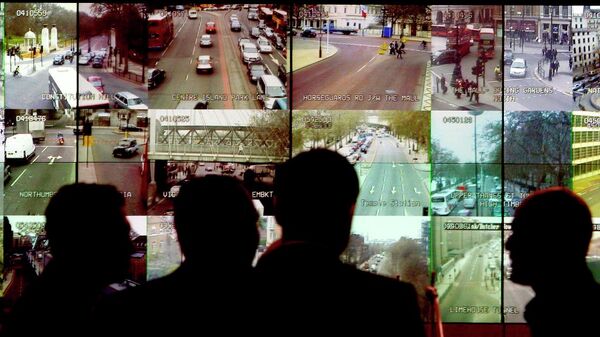The judgment stated that it was not lawful for the authorities to sign off on their own access to the information.
Sputnik spoke to Dr John Bahadur Lamb, Lecturer in Criminology and Security Birmingham City University, about the ruling and what it means for the future of surveillance by the UK government.
Sputnik: What did you make of the ruling?
John Bahadur Lamb: So the ruling by the Court of Appeal was to be expected. The government had been preparing for what's known as the Watson pat checks which were inspired by the Deputy Labour leader Tom Watson had bought the challenge, so the ruling wasn't unexpected and even the government had predicted that the ruling was going to go against them and this is due to the controversial nature of the Investigative Powers Act of 2016 that was ruled against.
Sputnik: The laws that were challenged are no longer in effect, could this put more scrutiny on the current surveillance laws?
John Bahadur Lamb: That is the good thing to come out of this ruling, so what we are dealing with here is a legacy issue from activities from GCHQ which is the governments intelligence agency that deals with online and electronic communications in this country. So in 2013 when Edward Snowden leaked a huge amount of documents from the national security agency in America, it became apparent that GCHQ in cahoots with the NSA was collecting vast amounts of online data, effectively what they were doing was hoovering up the entire internet in the UK and retaining large amounts of what are actually large amounts of confidential personal data and then using that regardless of whether or not someone was of intelligence or police interest.
It is a good thing that it has been challenged and I think the negative ruling is a good thing because it should actually lead to a better more clear parliamentary debate about these powers and it should hopefully bring public awareness about what the security agencies are doing on our behalf.
Sputnik: What will this mean for the future surveillance by the UK government?
John Bahadur Lamb: It depends what the parliamentary debate looks like and it depends to a certain extent what the public want this to look like, so what they were actually doing is they were collecting two sets of data, so one called bulk communications data and one called bulk personal data. Now bulk communications data, consists of the who, where, when and what personal communications sent over an electronic means. In the UK GCHQ were effectively collecting everything you ever send via email, WhatsApp, Facebook Messenger, Snapchat and storing it in a database regardless of whether you were intelligence or police use. They were also then collecting bulk personal data, which consists of medical, tax, biographical, commercial, financial and travel data and also storing that.
I mean the Investigatory Powers Act 2016 was there to legalise this process, so it's been happening legally up until today, that debate when it happened in the Houses of Parliament was very subdued and the bill passed very quickly which has led Tom Watson to bring his challenge, he was unhappy with the level of scrutiny it was given in Parliament. So while this will change their actions for the foreseeable short term future, there needs to be a parliamentary and a wider public debate about what level of surveillance is applicable in modern UK.
The views and opinions expressed by John Bahadur Lamb are those of the speaker and do not necessarily reflect those of Sputnik.



